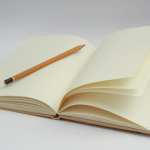 “Hey, how are you?”
“Hey, how are you?”
“Fine, thanks. How are you?”
“Good.”
This interaction is certainly familiar to all of us – as part of our saying “hello” we include a “how are you?” Yet how often does that question really prompt a deep and thoughtful response instead of the knee-jerk platitude?
Consider how it feels when someone looks you in the eye with genuine care and curiosity and asks, “How are you? What’s going on in your life?” The space that interest provides is naturally very inviting for you to express what’s truly going on in your inner world.
Bringing the Focus Inwards
More importantly, how often do you ask yourself that question?
When we meditate, we are not beholden to anyone or anything. We hold no responsibility to respond to any stimulus. Simply put, it is an opportunity to be.
When we are quiet and still, we naturally open ourselves up to the more subtle sensations within us and around us. Being open to what is going on is essentially approaching ourselves with curiosity, asking, “How are you?”
This is not a question that requires a mental answer. Neither our bodies nor our hearts speak English. They have their own language, speaking in sensations and feelings. As we turn our focus inwards, we give ourselves the time and space to listen to what our bodies and hearts have to say.
Catching the Subtle Signs
Imagine that you have lost your balance and are standing on one leg with your arms flailing wildly as you attempt to regain steadiness. Your body is working very hard in a loud and demonstrative way in order to bring itself back to ease.
However, what if you were able to sense that you were off-balance before your foot even left the ground in the first place? Being aware of a subtle tilt gives you an opportunity to correct your balance long before you have to flail your arms wildly.
When we are still in meditation and bring our awareness inside, we are giving ourselves the time and space to hear the more subtle signs of imbalance from our bodies and hearts.
It is far easier to make a course correction if you recognize, for instance, that you are thirsty because you sense some dryness in your throat as opposed to waiting until you have a pounding headache due to dehydration.
Tending to the subtleties prevents us from having a major intervention at a later time.
Take Time to Pause
Not too many years ago, we lived in a world that had built-in times for stillness and self-connection. Before the age of cell phones and the ubiquitousness of the internet, if we went for a walk, there was nothing to do but walk. When driving, the only “distraction” was the radio.
When in a waiting room at a doctor’s office, we waited. Throughout our days we had these spaces automatically built-in for us to self-connect and self-reflect, making it natural for us to hear the more subtle signals coming from our hearts and bodies.
However, our world is one where we are always on and always connected. The pace of life has increased dramatically as has the volume and intensity of sensation around us. With this comes less time and space built in to our days to listen to ourselves and to hear the more subtle signals of our bodies.
Without this time built in to our days, it becomes vital for us to create it. We have to create the space to approach ourselves with the genuine curiosity of the heartfelt, “How are you?”
When we do so, we open ourselves to hearing and responding to the subtleties of our imbalance, so we don’t have to drop everything when we are flailing our arms wildly.
Simple Everyday Pause
In addition to meditation, one simple technique you can employ is to take 10-second pauses throughout your day. After hanging up the phone, before rushing off to the next item on your to-do list, try pausing and sitting still for 10 seconds.
When you arrive somewhere in your car, turn off the engine and sit for 10 seconds before getting out. The opportunities for these pauses are everywhere: between clients, between tasks, between bites of food, after taking a shower our brushing your teeth.
Give yourself time to let go of all that just happened, collect your energy, and check in with yourself. Pause and listen to what subtle sensations are present.
Maybe you’ll notice very little, and proceed as you would have otherwise. Maybe you’ll notice that you do need to take a trip to the restroom or have a sip of water.
Regardless of what you notice, you are giving yourself the gift of genuine presence and asking, “How are you?”


